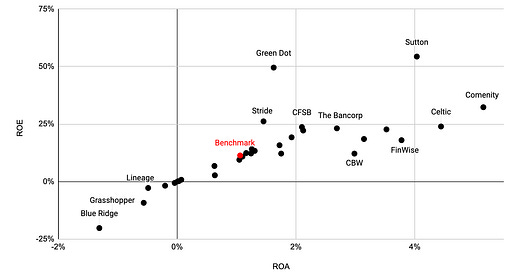FDIC’s Proposed “Synapse Rule” May Not Have Actually Applied To Synapse
Yotta Accuses Evolve of “Brutal Theft,” “Grotesque Misconduct,” How Are the Economics of BaaS Banks Doing?
Hey all, Jason here.
When this arrives in your inbox, I should’ve already arrived in Berlin — alas, at least if I’m delayed eight hours, I’m waiting at home and not at the airport! Looking forward to my first offsite (onsite?) with the Taktile team.
I’ll be back in the US in just over a month for Money20/20. My calendar is already starting to fill up, but…



